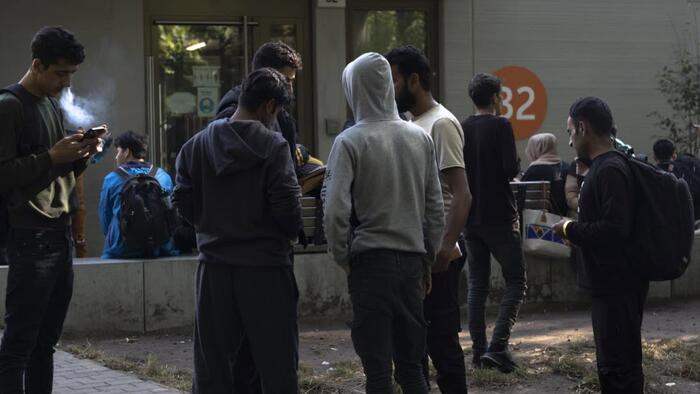In recent developments regarding immigration in Germany, Berlin Police Chief Barbara Slowik has sounded an alarm about the rising violence linked to migrants and the strain on resources. In a candid interview with RBB, Slowik articulated her belief that Germany has reached a limit on immigration that is both financially and socially unsustainable. She emphasized the urgent need for a structured societal response to the escalating instances of violence associated with immigrants and asserted that integrating newcomers into Germany’s democratic values should start early, using kindergarten programs as a foundation. According to Slowik, this integration is crucial not just for the immigrants themselves but also for maintaining public trust in law enforcement and ensuring the safety of German citizens.
The context of Slowik’s statements comes amid alarming crime statistics in Germany, with a reported increase of 5.5 percent in the overall crime rate, totaling 5.94 million recorded cases. Notably, the rise in non-German suspects was significantly higher than that of German nationals, prompting authorities to focus more sharply on crime prevention. However, these figures do not account for those with a migration background who hold German citizenship, highlighting the complexity of the immigration and crime narrative in Germany. Furthermore, an unprecedented surge in naturalizations has occurred in Berlin, driven by reforms that have made it easier for foreigners to acquire German citizenship after just three to five years of residency.
Amid concerns about budget constraints affecting public services, such as the inability of schools to reimburse teachers for educational trips, the local government is reportedly increasing funding dedicated to housing migrants, which has reached €1.3 billion. This shift in budget priorities raises questions about the long-term sustainability of resources allocated to support an increasing migrant population while other essential services are being cut back. The emphasis on financial strain comes as the government grapples with the implications of rising immigration figures alongside the stark realities of managing public services.
In response to the mounting concerns about public safety, Berlin’s Interior Senator Iris Spranger has announced plans to expand police powers to bolster security efforts. The proposed amendments to the General Security and Order Act (ASOG) intend to enhance police capabilities by allowing access to biometric data and encrypted communications, thereby improving the ability to prevent crime and respond to potential terrorism threats. The moves toward increased monitoring and the potential introduction of electronic monitoring in high-risk cases signify a growing reliance on technology in law enforcement and public safety.
The ongoing refugee crisis in Berlin has also led to a booming market for private security firms, which are securing lucrative public contracts to manage security at migrant shelters. These firms have capitalized on the situation, raising concerns about the broader implications of privatization in public safety and migration management. The need for effective oversight of these contracts is critical to ensure that service quality is maintained while addressing the rising tide of concern from the public regarding safety in the context of increasing immigration.
Finally, Slowik’s recommendations include establishing a closed facility for young migrant offenders, designed to temporarily house repeat juvenile offenders and provide them with targeted intervention. Despite her proposals, officials from the state interior ministry confirmed there are currently no concrete plans for such a facility. This highlights the challenges in balancing the need for innovative approaches to youth crime prevention with the logistical and political hurdles of actual implementation. As debates continue around immigration and law enforcement in Germany, the narrative reflects a broader tension between societal values, public safety, and the realities of integration in an increasingly diverse nation.

